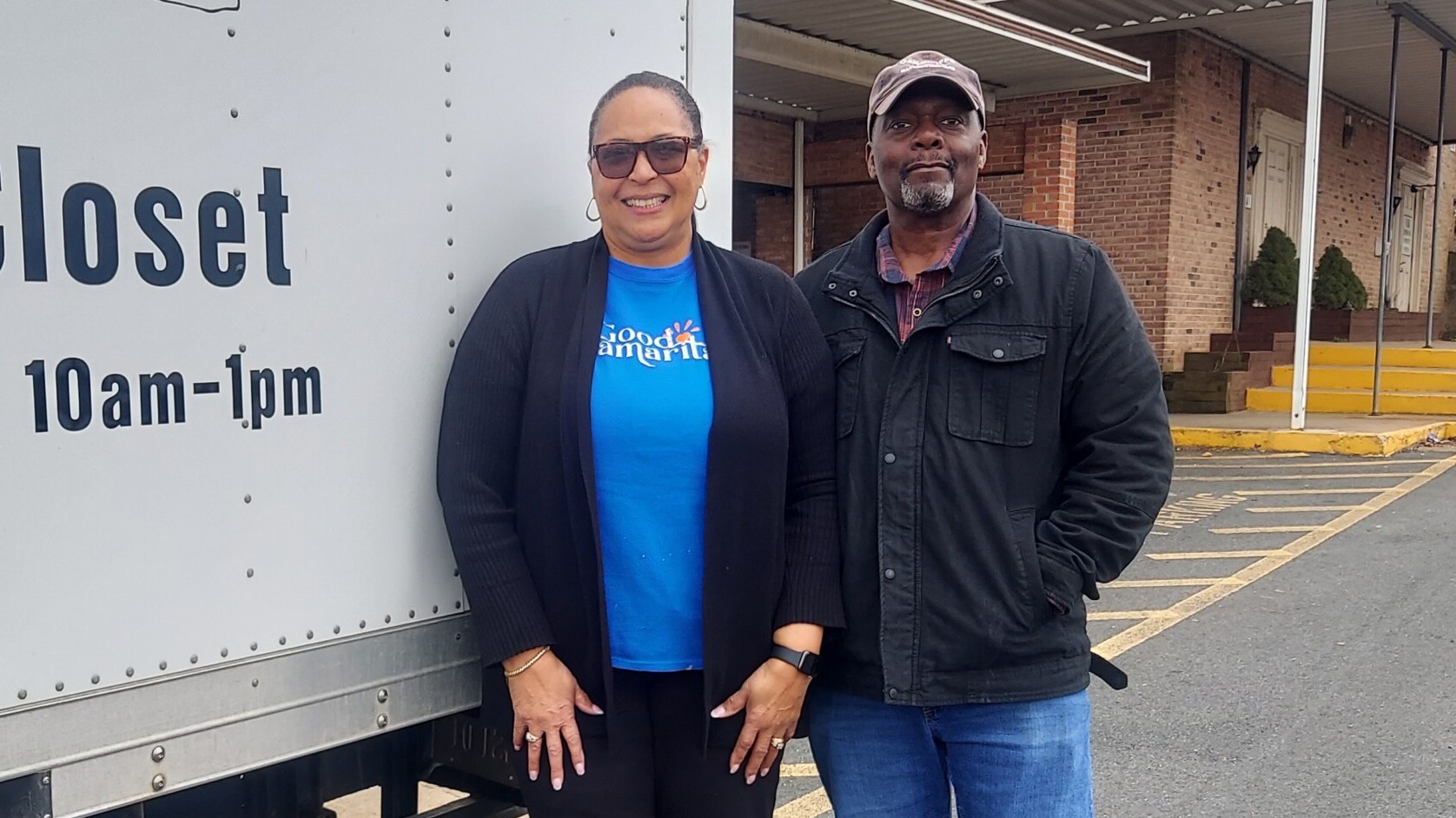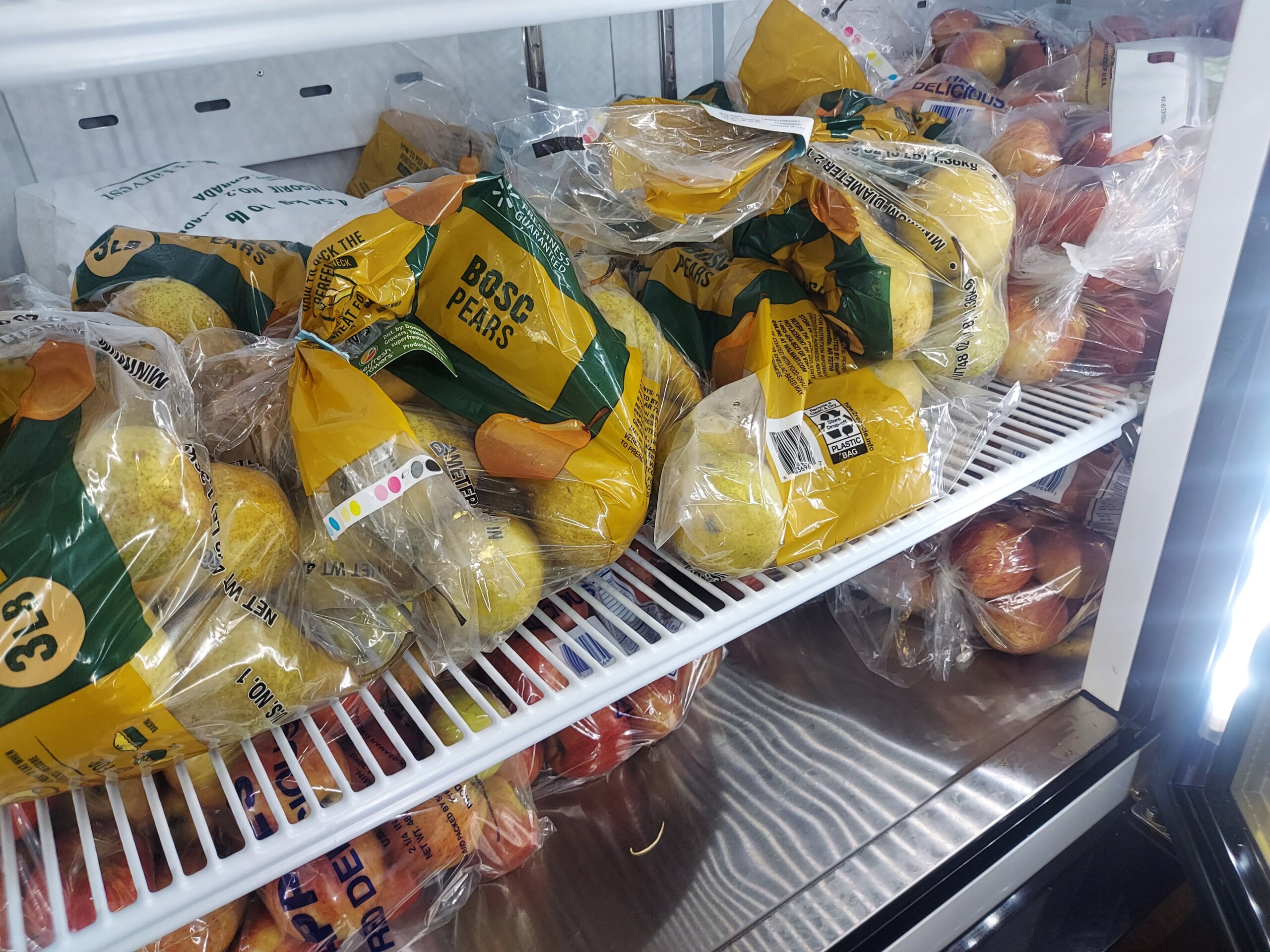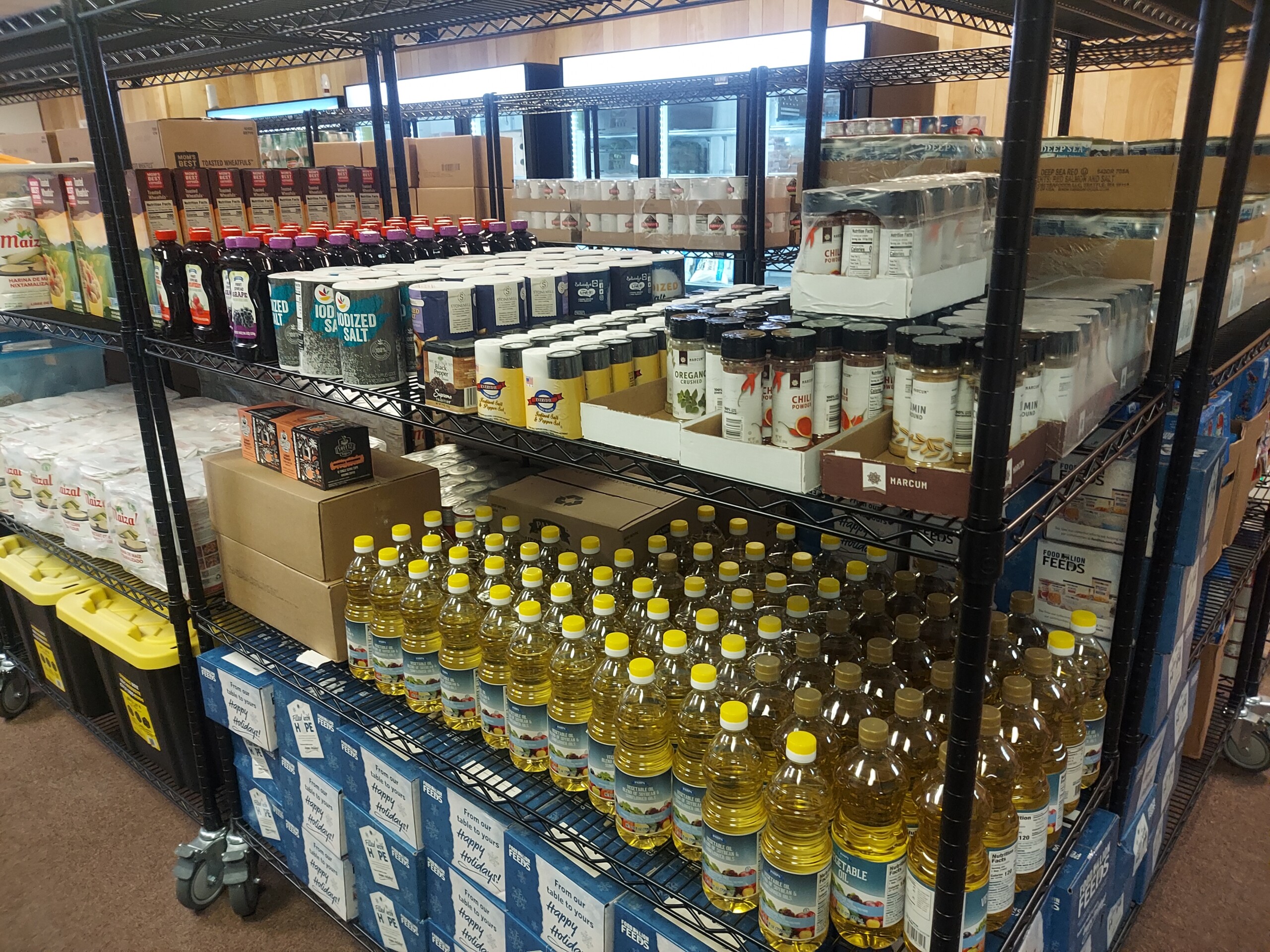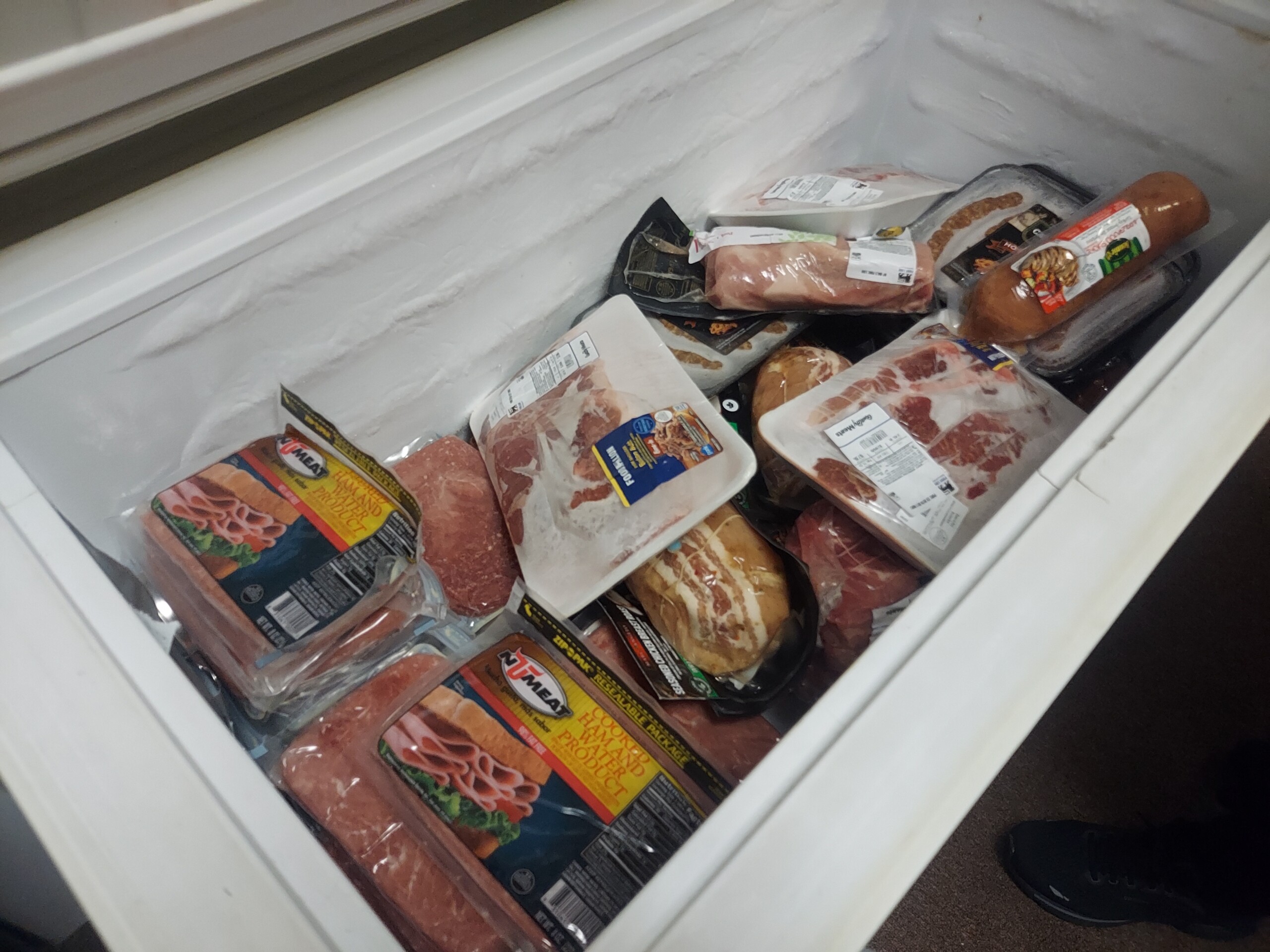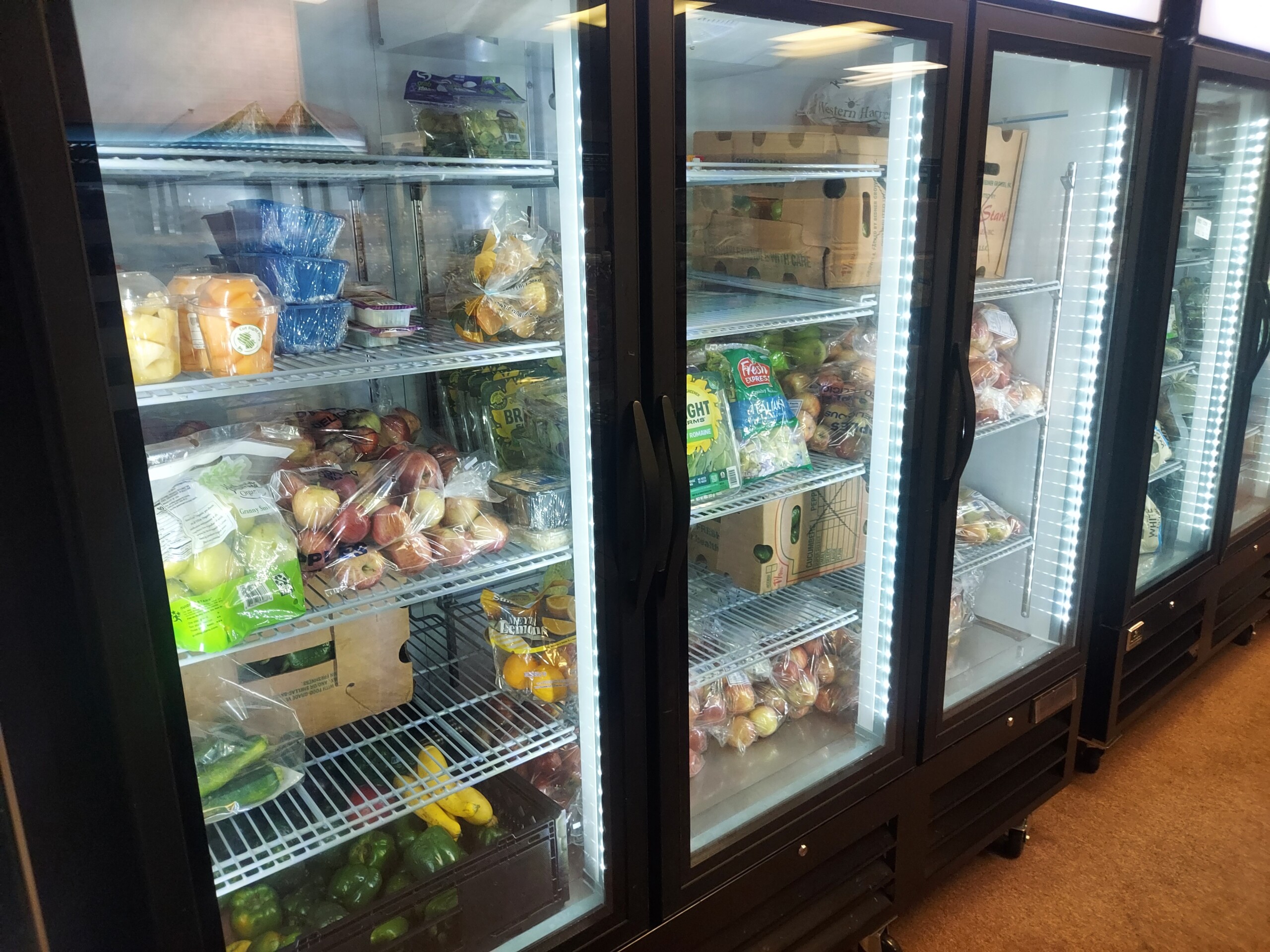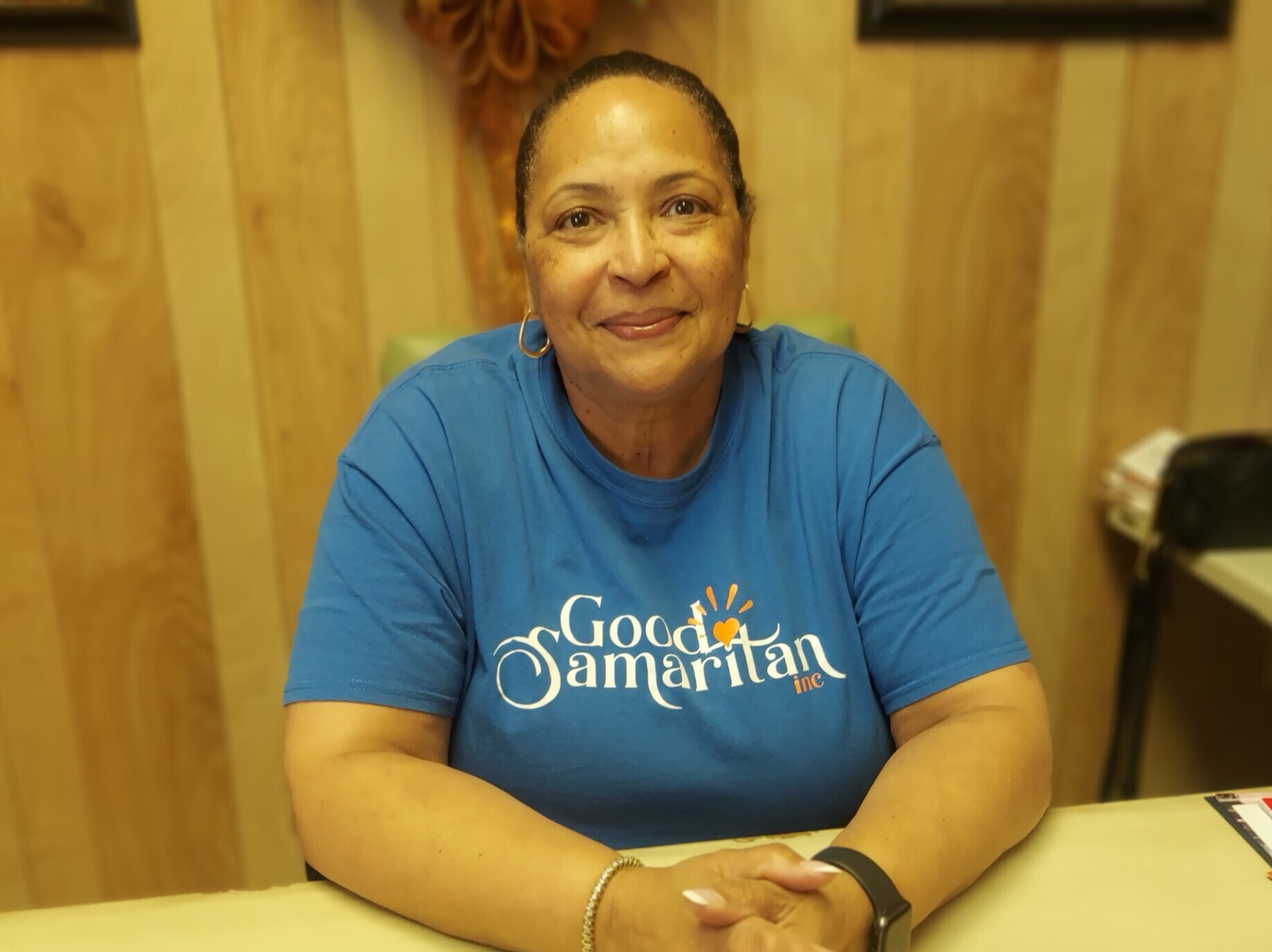When you step through the doors of Good Samaritan Food Pantry and Clothing Closet, located in Orange, Virginia, you’re greeted immediately by a pleasant floral scent. You hear a chorus of laughter and goodwilled wisecracks from the volunteers working in the back.
A voice calls out, “How are you? How can we help you today?”
After checking in at the front desk, you walk through the waiting area—the walls lined with children’s drawings and pictures of family members—and you make your way into the food pantry. A sign above the entrance reads: “Big Al’s Room.”
The shelves are stocked with canned fruits and vegetables, soups, tins of tuna and chicken, boxes of pasta and rice, and cooking oils and spices. Coolers are filled with fresh produce and dairy, and freezers are stuffed with frozen meats. You’re given a shopping cart, and a volunteer walks the aisles with you, helping you pick out food for your family.
“Do you need anything else? How about a warm coat for winter?” The volunteer leads you to the clothing closet in the back. There’s another sign; this one reads: “Ozella’s Room.” You walk past racks of clothing and beautifully decorated fitting rooms, each space named for a beloved family member or friend.
This is what it’s like to visit the food pantry as a guest. A partner of the Blue Ridge Area Food Bank, Good Samaritan is the brainchild of Valencia and Tommie Bailey. They opened in 2014 after seeing a rising need in their community.
The pantry room is named for Program Director Valencia’s father, Alfonso, or “Big Al” and the clothing closet is named for her mother, Ozella. Their mission is inspired by the spirit of giving passed down through generations.
“My grandfather owned over one-hundred acres of land. We fed everybody in the community,” Valencia shared during a recent visit. Her father and mother were the same way—committed to feeding everyone in their neighborhood.
“So, I kind of grew up with always giving. I never thought in my life that we’d be at this magnitude, but we’re here and this is my baby,” Valencia said. “I love it. This is my heart.”
That’s why she takes so much pride in the full guest experience. “I make sure everything’s clean and neat, off the floor. Everything’s good to go, so when guests come in, they get what they need,” Valencia said.
Making guests feel at home
The attention to detail doesn’t stop there. From the food they offer to the conversations they have with guests, everyone working at the pantry is committed to creating a welcoming environment where everyone’s needs are met. They bring in various spices to make sure home cooks have what they need to prepare delicious meals. Peanut butter and jelly and juice boxes are provided as easy, healthy lunches for kids. Fruit cups and apple sauce, plus ready-made meals, are favorites of seniors who need something healthy and convenient to eat with their medications.
“We try to encourage people. We want to make them feel loved,” said Tommie Bailey, Executive Director. Tommie is also the pastor at the church next door. “You never really know someone’s situation. I’ve had grown men crying, sitting at my desk, because they can’t take care of their family; they can’t provide for them. And you know, it could be any of us.”
Stigma is one barrier that Valencia, Tommie, and their volunteers are continually working to combat so that more people feel comfortable asking for help. Volunteers are trained to be courteous and compassionate toward guests so they can learn more about what they need.
“When [volunteers] come, we share that it’s important that guests are treated like kings and queens. We’re not here to judge,” Valencia explained. “The volunteers are really good-hearted people. They always want to go the extra mile.”
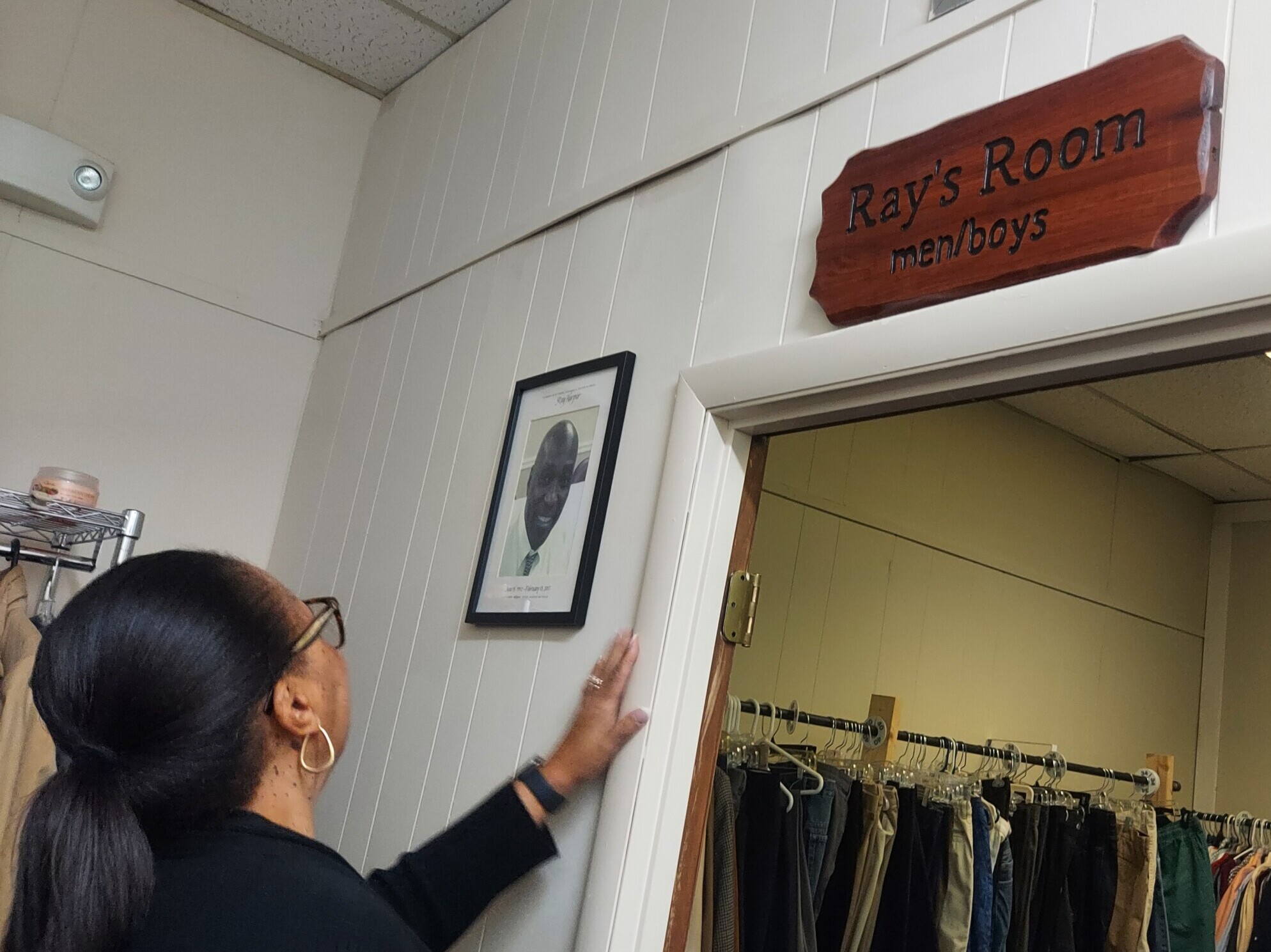
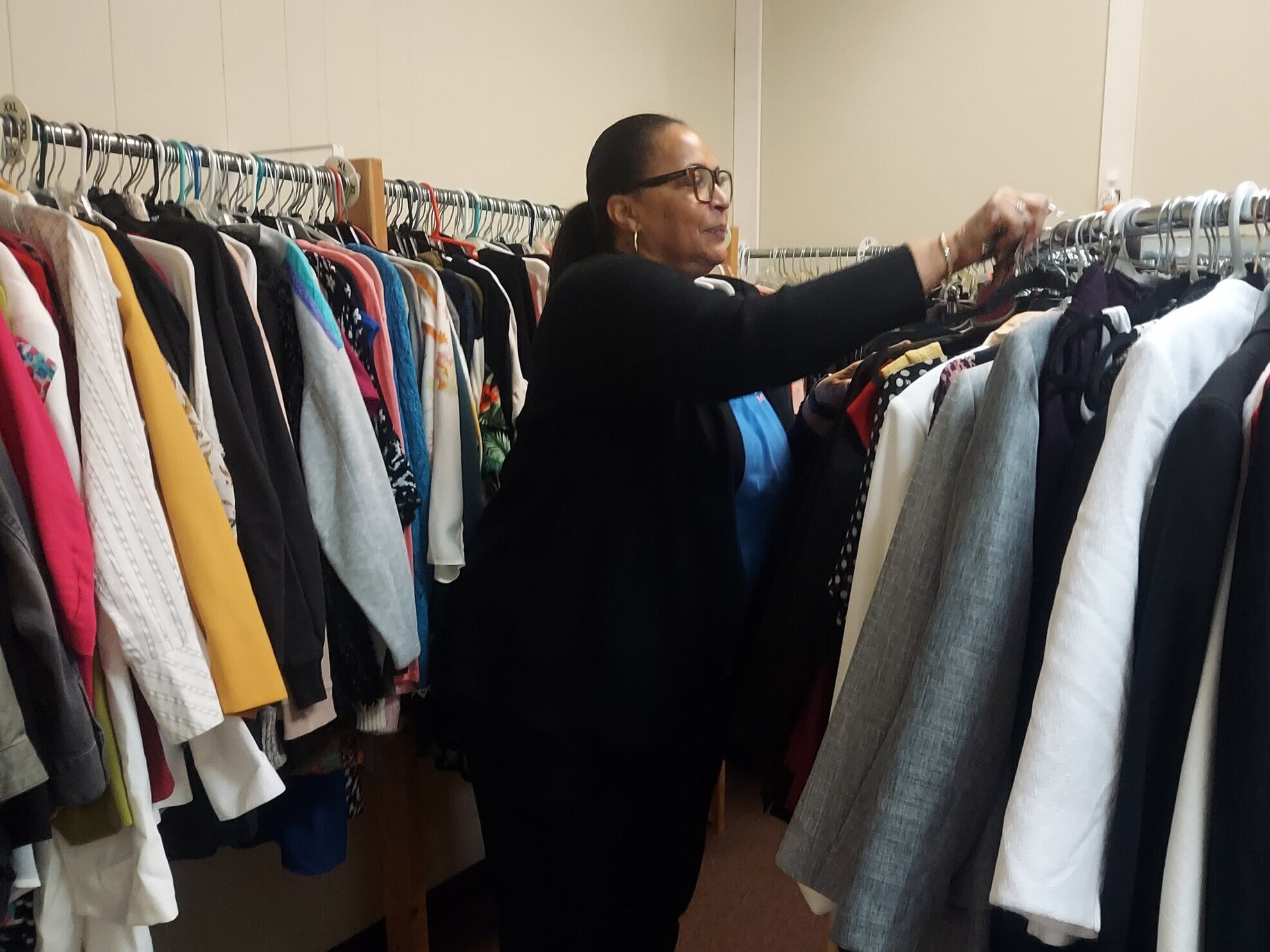
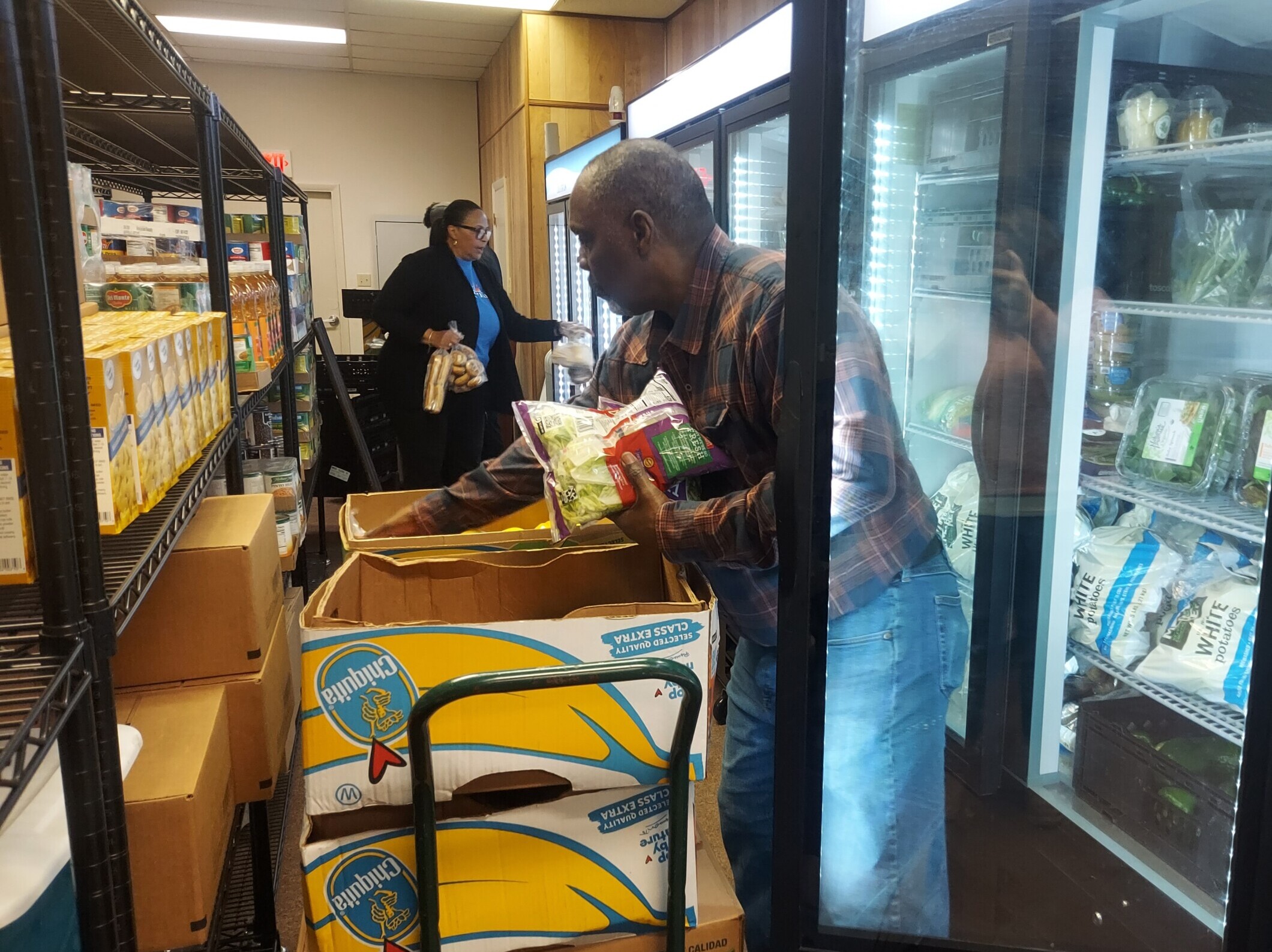
Working as community connectors
Tommie and Valencia’s work extends beyond the food pantry and clothing closet. They also work with people experiencing homelessness in the community—providing toiletry kits, warm blankets, hot meals, and clothes. They partner with their local Offender Aid Restoration (OAR) Reentry Program to help incarcerated adults re-enter the community with food and clothing. And they work with the Orange County Social Services office to help guests access public benefits and community support.
“We are a pool of resources for everyone,” Valencia added. “If you come in the door with a need, I promise you, I can give you a phone number, make a call, help you.”
Working as community connectors comes naturally to this team and they hope to continue to serve more people in the future. Their vision is to create a women and children’s shelter that would provide mental health programs, a free clinic, and budgeting classes.
“It’s more than a shelter,” Valencia shared. “It’s going to be a place where we can help them have a better tomorrow.”
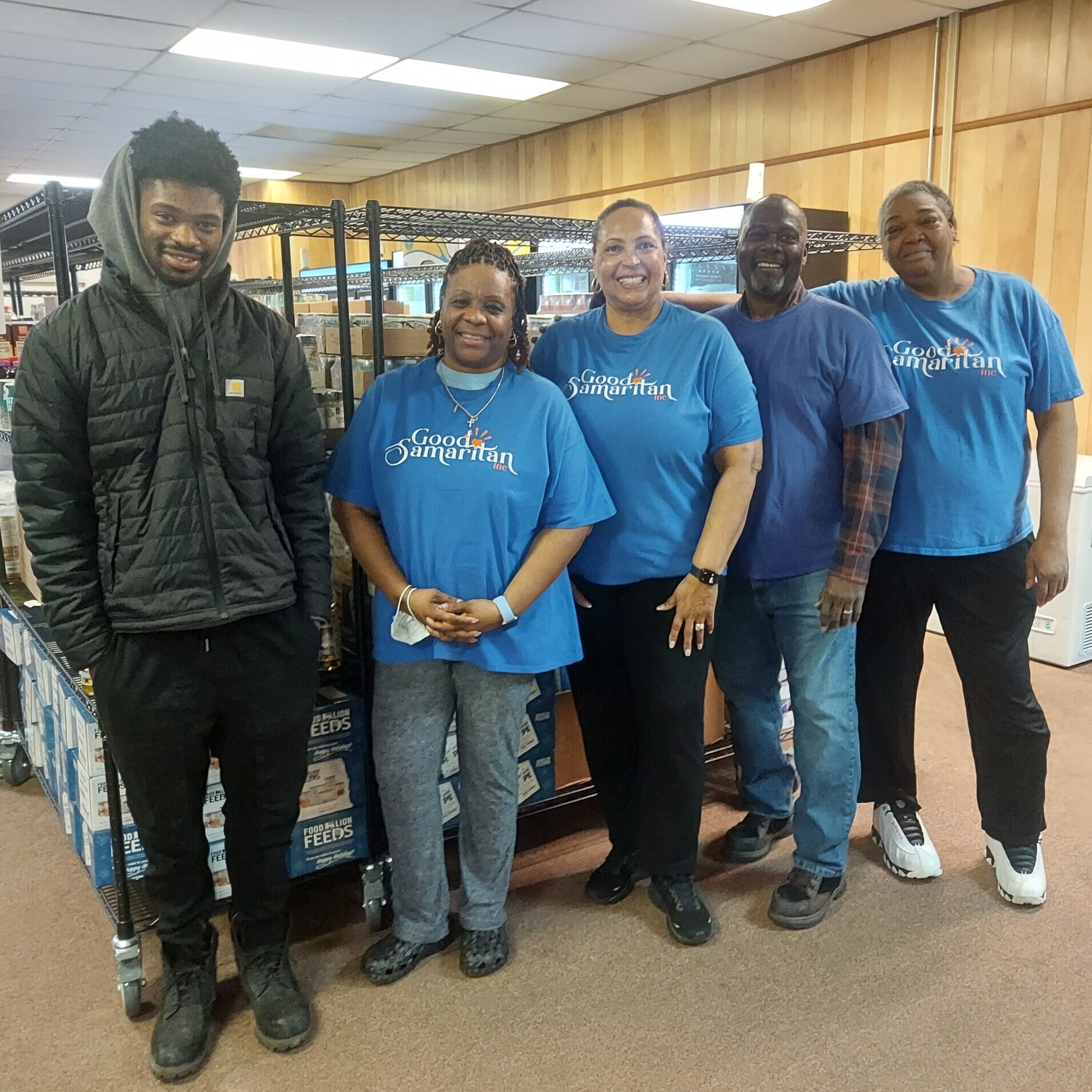
An increase in need
Like many of our food pantry and program partners, Good Samaritan has noticed their numbers growing. “On average we probably serve 28-29 families a week,” Valencia shared. In January, they served a total of 608 people. A reduction in SNAP benefits and an increase in the cost of living are some of the factors they attribute to the spike.
“We had families who were getting $300 (a month, and now the benefit is) down to $78. That hurts. They can’t afford it,” Valencia said. “The cost of rent and housing in this county is [very high]. So, families are picking between, ‘Should I pay my bills or feed my family?’ The blessing is that this is where Good Samaritan comes in. We can feed and clothe you free. You just come get it.”
So, what can the community do to lend their support? It’s simple: Get involved.
“I think it’s very important that the community wrap around their citizens and help everyone grow to be successful. The thing is, it doesn’t take a lot to help someone else. I am blessed that we can buy food from [the Food Bank] at five cents a pound, and I tell people every dollar matters.”

